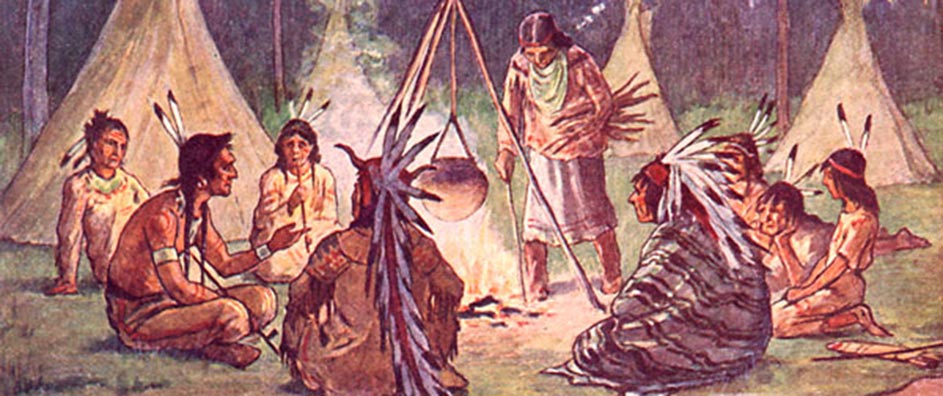The exploration of peace is a perennial subject, one replete with complexities and steeped in the fabric of humanity’s collective consciousness. Within this discourse, the figures of Deganawida and Baha’u’llah emerge as two seminal peacemakers whose teachings and legacies resonate across cultures and eras. This article delves deeply into their distinctive philosophies, illuminating how their visions not only promise to reshape perspectives on peace but also evoke a profound curiosity for those yearning for harmony in an often discordant world.
Deganawida, often referred to as the Great Peacemaker, is a pivotal figure in the formation of the Iroquois Confederacy, a sophisticated political and social structure that emerged in what is now northeastern North America. His life and teachings encapsulate a journey towards reconciliation amid strife. In a time marked by tribal conflict and adversarial relations, Deganawida advocated for principles that would unite the five nations of the Iroquois by fostering diplomacy, cooperation, and mutual respect. His teachings underscored the importance of a collective identity, emphasizing that peace is not merely an absence of conflict but a harmonization of human relationships.
Central to Deganawida’s philosophy is the concept of “Genuine Peace,” which transcends simply resolving disputes. This paradigm encapsulates the notion that peace must be an intrinsic pursuit of justice and equity. According to Deganawida, a fundamental precursor to peace is the establishment of a robust moral framework, one that is predicated on empathy and understanding. This approach invites an introspective examination of societal dynamics, prompting individuals to consider their roles in a broader communal tapestry.
Furthermore, the Peace Maker’s lessons integrate intricate social constructs, positioning the family as the cornerstone of societal peace. He taught that strong familial bonds and communal responsibilities nurture the seeds of understanding and reconciliation. This perspective illuminates a critical shift: recognizing that societal peace is not solely the responsibility of leaders but is cultivated in the hearts and homes of individuals.
Transcending time and geography, the teachings of Baha’u’llah emerge with remarkable resonance in the contemporary quest for global harmony. As the founder of the Baha’i Faith, Baha’u’llah promulgated principles that advocate for the oneness of humanity, the elimination of prejudice, and the establishment of universal justice. His writings reflect a clandestine spiral of historical inevitability — an assertion that humanity is poised on the precipice of a new era infused with spirituality and unity.
A defining feature of Baha’u’llah’s teachings is his unwavering belief in the essential unity of all religions. He posited that the great religious figures throughout history — including Deganawida, Zoroaster, Moses, Jesus, Muhammad, and others — are part of a continuum that illustrates humanity’s evolution towards a more profound understanding of spirituality and ethical stewardship. This notion holds a significant promise, encouraging individuals to eschew divisive perceptions and, instead, embrace a shared quest for truth.
While originating from vastly different historical and cultural contexts, the philosophies of Deganawida and Baha’u’llah converge in their celebration of diversity as a catalyst for unity. Each leader’s commitment to inclusivity challenges the entrenched biases that often fracture human connection. This shared vision beckons individuals to acknowledge their differences as essential to the beauty of a cohesive societal framework.
Moreover, Baha’u’llah advocated for the establishment of a global governance system that reflects the aspirations for peace articulated by Deganawida. He envisioned a world where scientific advancement and spiritual enlightenment coalesce to inform policies and practices that address the needs of all people. This ambitious framework engages our collective consciousness, compelling us to ponder the possibilities of a more just and equitable world.
Delving into these teachings invites a reexamination of one’s own ideologies and prejudices. What would it mean for individuals and communities to fully embrace these teachings? How might societal structures shift if rooted in the principles of inclusivity and empathy espoused by these peacemakers? Such inquiries evoke an intellectual ferment that fuels curiosity and a desire for deeper understanding.
Furthermore, the universality of their messages provides fertile ground for dialogues across cultural and religious divides. Engaging with their philosophies serves as a reminder that, whilst histories may diverge, humanity’s aspirations for peace and solidarity remain a shared pursuit. This positions Deganawida and Baha’u’llah not merely as historical figures but as torchbearers of a transcendent quest for unity.
In conclusion, the teachings of Deganawida and Baha’u’llah extend far beyond the narratives of their time; they beckon a transformative shift in perspective, urging individuals to engage with the ideals of peace through a renewed lens. The principles of unity, justice, and empathy they espoused are not just ideals to be championed—they are calls to action that resonate today. By integrating these teachings into contemporary dialogues, humanity can indeed honor the legacies of these great peacemakers, paving the way toward a harmonious future infused with understanding and compassion.
